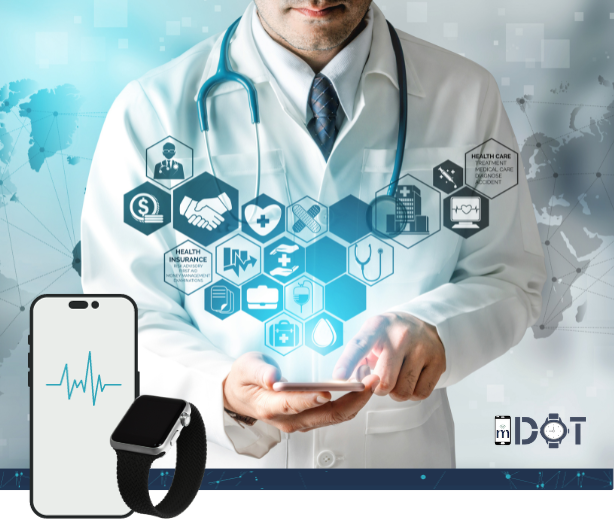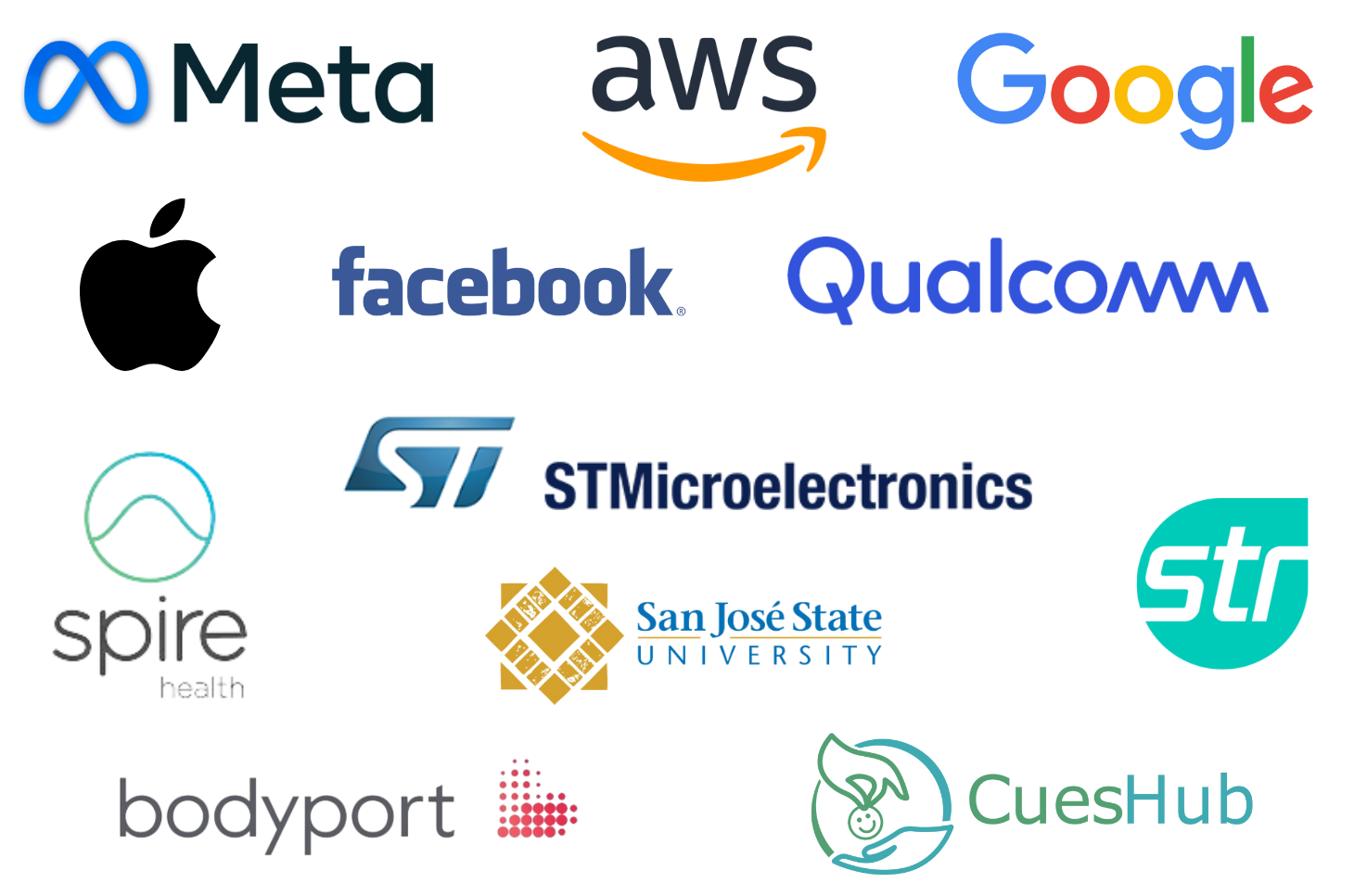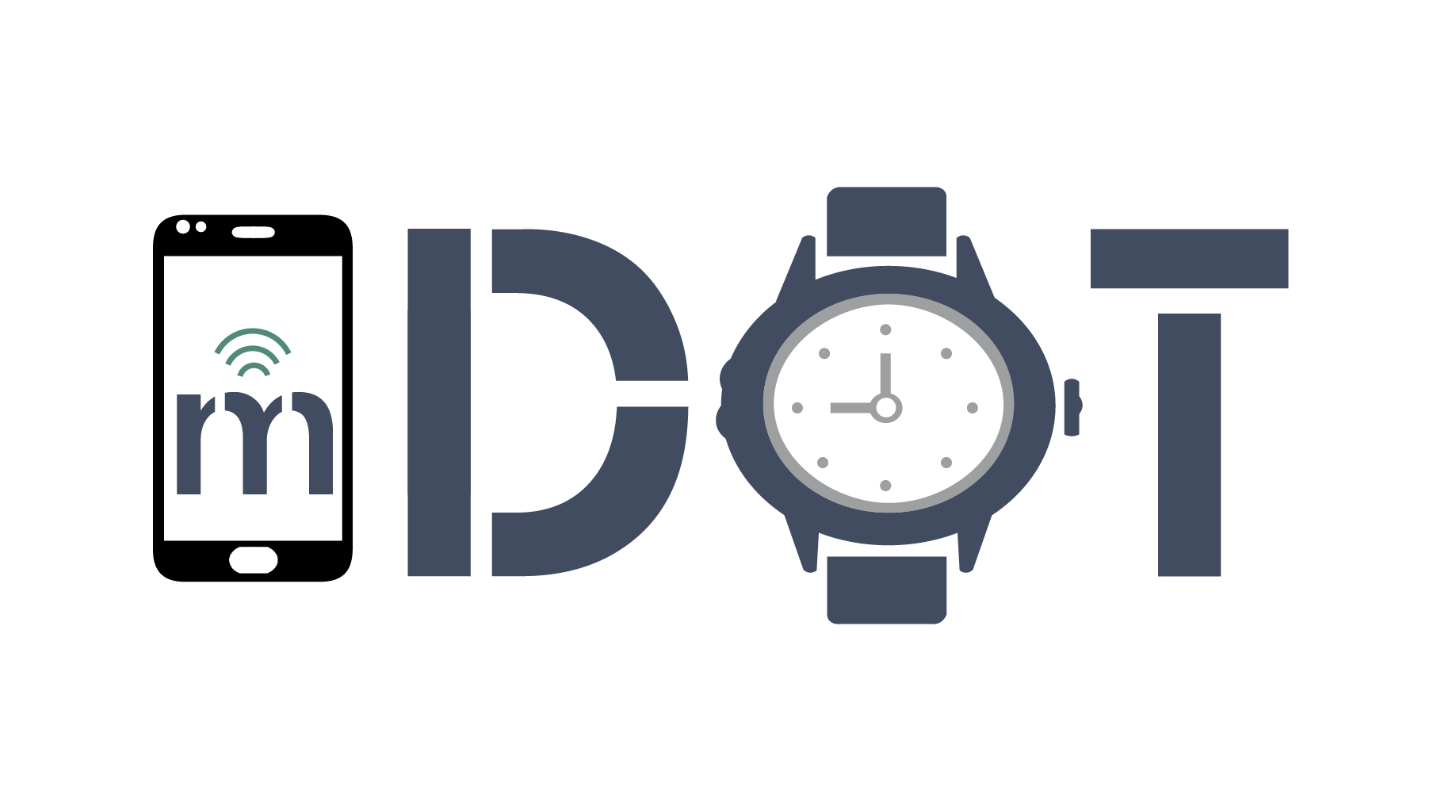The mDOT Center
Transforming health and wellness via temporally-precise mHealth interventions






mDOT@MD2K.org
901.678.1526
901.678.1526









One of the biggest drivers of the nation’s rising healthcare spending is providing care for patients with chronic diseases, many of which are linked to health behaviors such as poor diet, lack of exercise, and smoking. A key strategy for making self-care and preventive measures more achievable has been the integration of passive monitoring into everyday life via mobile sensors and providing personalized information and guidance to patients.
mDOT Center tools transform the ability of researchers to leverage the full range of available sensors and mobile technologies, allowing them to deliver dynamically personalized and temporally-precise mHealth interventions to individuals. These interventions can precipitate a much-needed transformation by enabling patients to initiate and sustain the lifestyle choices necessary to prevent or manage the burden of chronic health conditions.
The mDOT Center develops methods of identifying the ideal moments when health risks are elevated yet mitigatable. Our technologies have a significant potential to advance the fundamental understanding of health and behavior by supporting the analysis of complex, longitudinal, mHealth data.
To maximize the chances of success, mobile health intervention content is optimized to address the key drivers of current risk. The mDOT Center addresses these challenges by developing advanced reinforcement learning methods so that they can be applied to the case of mHealth interventions.
The mDOT Center resources make remote care possible for patients who have traditionally required close involvement of clinicians, marking a major transformation in care delivery. Our deliverables enable much greater personalization of mHealth interventions by expanding access to emerging biomarkers.
Efforts within each Technology Research and Development (TR&D) are driving the evolution of mHealth, with a commitment to transparency and collaboration.
Our teams seek to share publications, GitHub repositories, and datasets to empower the mHealth community and foster a culture of innovation and knowledge exchange within the mobile health landscape.

The mDOT Center aims to empower researchers by enabling the discovery, optimization, and deployment of temporally precise mHealth interventions in real-life. These interventions, tailored to individual biopsychosocial-environmental contexts, directly target the prevention, management, or treatment of medical conditions.
Our three TR&Ds conduct research and develop mHealth technology to realize this vision, relying on real-life data and addressing practical health research problems for success.

The mDOT Center currently teams with eight collaborative projects (CPs), each of which make a unique contribution from their respective sites across the country. These collaborations encompass several health targets including addictive behavior, sedentary behavior, cardiovascular diseases, oral health, and mental health. Our CPs cover analysis of data from observational studies, theory development, intervention design, development, testing, and novel sensor and biomarker development.
The mDOT Center has assembled a unique set of service projects (SPs). As the goal of the mDOT Center is to create new mHealth technological assets in the research community, successful transition to a diverse group of service projects, whose needs are being served by mDOT Center technologies, is essential to test and enhance the research utility of the mDOT Center. These SPs are well-equipped to test and deploy mDOT Center technologies as soon as they become available.

The mDOT Center, at the forefront of technological innovation, has played a pivotal role in fostering the birth of two groundbreaking startups.
Leveraging its cutting-edge research and development initiatives, the center has incubated a dynamic environment that encourages creativity and entrepreneurship.
The mHealthHub is a virtual forum where technologists, researchers, and clinicians connect, learn, share, and innovate on mHealth tools to transform healthcare. Its mission is to create an innovation ecosystem that fosters the collaborative team science essential for mHealth and data science innovations.

The mHTI is a national connector/incubator/facilitator for advancing mHealth researchers with the transdisciplinary expertise and networks for co-creating practical healthcare solutions with societal impact.
Through a week-long workshop, the mHTI helps selected scholars develop a shared vocabulary and conceptual framework, acquire deep domain expertise in latest mHealth technologies and methodologies, and obtain the soft skills and team science abilities and connections essential for mHealth innovation.

The virtual toolbox contains a curated selection of technologies and datasets designed with the mHealth researcher in mind. These open-source tools were developed by the TR&Ds and are available on the mHealthHUB for download and use.
The mDOT Center is unwavering in its commitment to nurturing the next generation of leaders in mHealth research, clinical practice, and scientific inquiry.
Our emphasis on practical experience ensures that our alumni are not only well-versed in theoretical concepts but also adept at applying their knowledge to real-world challenges. This combination of theoretical understanding and practical application makes them highly sought-after candidates for positions in leading companies and academic institutions.

The National Institute of Biomedical Imaging and Bioengineering (NIBIB) supports a large network of National Centers for Biomedical Imaging and Bioengineering (NCBIB), including the mDOT Center, through the P41 grant mechanism.
These Centers create critical and unique technology and methods at the forefront of their respective fields and apply them to a broad range of basic, translational and clinical research.







